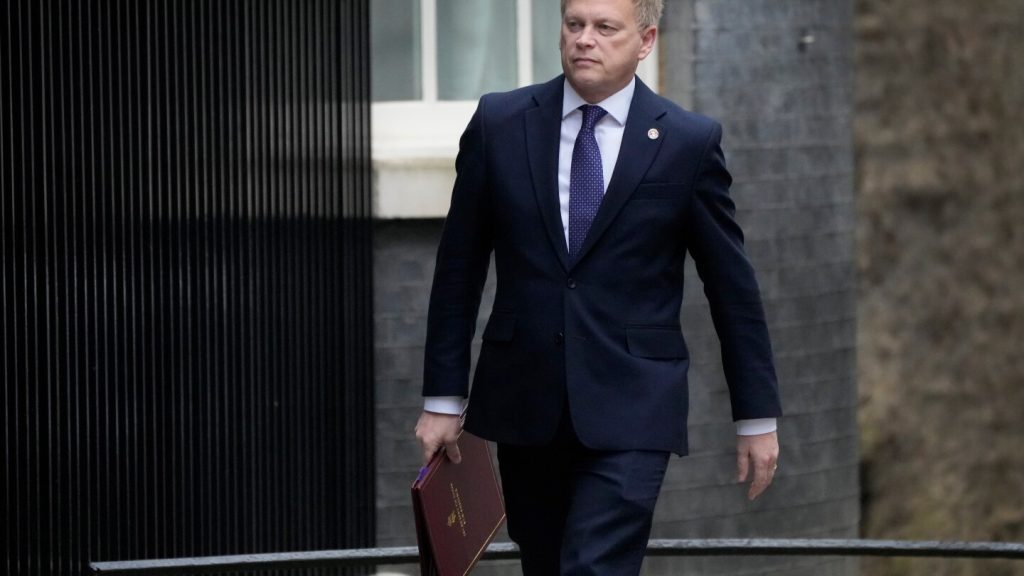Listen to the article
British Man Jailed for Seven Years in Russian Espionage Plot
A 65-year-old British man who fantasized about “being like James Bond” has been sentenced to seven years in prison after attempting to spy for Russia, in a case that has raised fresh concerns about foreign intelligence operations in the United Kingdom.
Howard Phillips was found guilty in July of trying to pass sensitive information about former Defense Secretary Grant Shapps to individuals he believed were Russian intelligence agents. In reality, Phillips was communicating with undercover British intelligence officers in a sting operation that spanned from late 2023 to May 2024.
“You were prepared to betray your country for money,” Justice Bobbie Cheema-Grubb told Phillips during Friday’s sentencing at Winchester Crown Court in southern England. The judge noted that Phillips exhibited “narcissistic tendencies and an overblown sense of his own importance.”
During the trial, prosecutors revealed that Phillips attempted to provide Shapps’ contact details and the location of his private aircraft to the supposed Russian agents. According to court testimony, Phillips intended to “facilitate the Russians in listening on British defense plans” during a period when Shapps served as defense secretary, a position he held from August 2023 until July 2024.
The court heard testimony from Phillips’ ex-wife, who described his long-standing fascination with espionage. She said Phillips “would dream about being like James Bond” and regularly watched films about British intelligence services because he was “infatuated with it.” This apparent obsession ultimately manifested in real-world criminal behavior.
The case comes amid heightened concerns about Russian intelligence activities in the UK, which have escalated since Russia’s full-scale invasion of Ukraine in February 2022. British security services have reported a significant increase in Russian espionage attempts targeting sensitive military and governmental information.
In a victim impact statement read to the court, Shapps expressed shock upon learning that someone he had previously socialized with had attempted to compromise his security. The former defense secretary recalled attending dinner at Phillips’ home in 2002, highlighting the personal betrayal aspect of the case.
“What is unacceptable is one individual’s reckless behavior exposing my entire family to the extremely serious risks that come from a foreign intelligence service’s activities,” Shapps stated in his impact statement. As defense secretary, Shapps would have had access to highly classified information regarding Britain’s military operations and NATO coordination efforts.
Bethan David, head of the Crown Prosecution Service’s Counter Terrorism Division, emphasized the broader significance of the conviction, saying it sends “a clear message to anyone considering spying for or assisting Russia.” The case demonstrates the UK’s ongoing counterintelligence efforts at a time when Western nations face increasingly sophisticated espionage threats.
The conviction comes as part of a broader pattern of Russian intelligence operations being uncovered across Europe. Security analysts note that Moscow has intensified its intelligence collection efforts against NATO countries, particularly those, like Britain, that have provided substantial military support to Ukraine.
British security services, including MI5 and MI6, have allocated increased resources toward countering Russian intelligence activities in recent years, with the Phillips case representing a successful intervention before sensitive information could be transferred to a foreign power.
The seven-year sentence reflects the seriousness with which UK courts view espionage activities, particularly during a period of heightened international tensions between Russia and Western nations.
Fact Checker
Verify the accuracy of this article using The Disinformation Commission analysis and real-time sources.




14 Comments
The significant prison sentence in this case sends a clear message that the UK takes espionage and foreign interference very seriously. Maintaining strong safeguards against such threats is crucial for national security.
This case serves as a sobering reminder that even amateurs can pose a risk to national security. Continuous vigilance and effective counterintelligence measures are essential to protect sensitive government information.
It’s troubling to see someone so deluded about their own abilities attempting to engage in espionage. This case serves as a reminder that even seemingly harmless individuals can pose a risk to national security.
The sentencing in this case should deter others from similar attempts to assist foreign adversaries. Maintaining strong counterintelligence measures is crucial to safeguarding national interests.
A 7-year sentence seems appropriate given the seriousness of the attempted espionage. I hope this serves as a deterrent to others who may be tempted to engage in similar activities.
Trying to spy for Russia is a grave offense. The court was right to hand down a substantial prison term to send a clear message about the consequences of such actions.
While the perpetrator may have been more of a bumbling amateur than a skilled spy, the intent to assist a hostile foreign power is deeply concerning. Robust security protocols and effective counterintelligence efforts are vital to safeguard national interests.
The substantial prison sentence in this case underscores the gravity of the offense and the UK’s commitment to combating foreign interference. Maintaining strong safeguards against such threats is crucial for preserving national security.
While the perpetrator may have been more of a fantasist than a skilled spy, the intent to betray one’s country is deeply concerning. Effective security measures and vigilance are essential to combat such threats.
This case highlights the importance of taking all potential security risks seriously, even from seemingly innocuous individuals. Robust intelligence-gathering and counterintelligence efforts are vital to protect national interests.
This is a concerning case that highlights the ongoing security threats from foreign intelligence agencies. The perpetrator seems to have been driven by delusions of grandeur rather than any real espionage skills.
It’s worrying to see individuals trying to assist foreign powers for personal gain, even if their efforts are ultimately ineffective. Robust counterintelligence measures are crucial to protect national security.
This case highlights the need for vigilance against foreign interference, even from seemingly harmless individuals. Strengthening security protocols and intelligence-sharing is crucial to combat these threats.
While the perpetrator may have been an amateur, the intent to assist a hostile foreign power is deeply concerning. Robust safeguards are essential to protect sensitive government information.